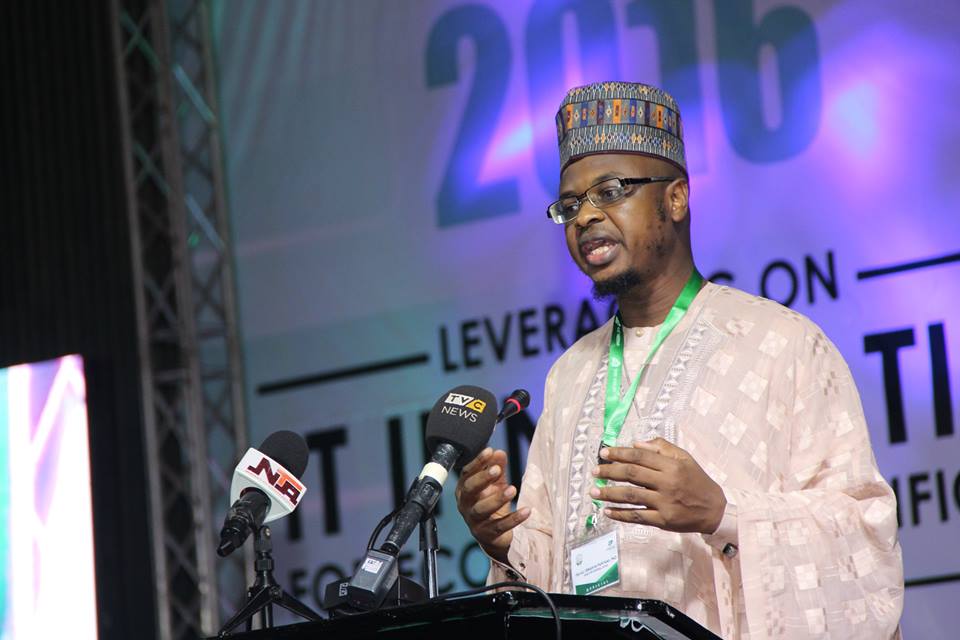GROpinion
Pantami: The Alternative Conversation
Article written by Sunny Jackson Eyibio


The story of Anna, the Egbado Little Girl, and our lack of progress as a people
If some public affairs commentators and their partisan associates have their way, the next head to be placed in the hangman’s noose is that of Dr Isa Ali Ibrahim Pantami, who is better known as Sheikh Pantami.
In his previous public office as Director General of the National Information Technology Development Agency (NITDA), Pantami remained in obscurity. All that will however change soon.
Nominated and confirmed as Minister in August 2019, Pantami’s posting to the Ministry of Communications and Digital Economy is no doubt fit and proper. Not only had he acquitted himself in one of the agencies of his new responsibility, his background as a computer science and technology management graduate, plus doctorate in Computer Science, with specialisation in Computer Information System adequately prepared him for his ministerial portfolio. This is not the tale of a square peg in a round hole.
In less than two years in office, Pantami has justified the confidence President Muhammadu Buhari had in the 48-year-old Sheikh. The new Ministry, under his watch, has rolled out two strategic documents for the sector – the National Digital Economy Policy and Strategy, and the National Broadband Plan. While yet to celebrate his first year on the Ministerial seat, Pantami frontally tackled the issue of excessive Right of Way charges and vandalism of telecommunication infrastructure, which had nagged the sector for decades.
With Pantami in charge at the Ministry of Communications and Digital Economy, broadband penetration increased by about 10 per cent in a year, instead of the average annual increase of about 1.7 per cent. According to the Gross Domestic Product (GDP) Report for the second quarter of last year, as compiled by the National Bureau of Statistics, Information Communication Technology (ICT) contributed an unprecedented 17.83 per cent to the GDP. ICT was also the fastest growing sector of the Nigerian economy in the fourth quarter of last year contributing 14.7 per cent.
Pantami also initiated the first virtual Federal Executive Council meeting on the 13th of May 2020 and has been coordinating the technical aspects of the meetings since then.
To critics of Sheikh Pantami, all these do not matter. Not even the passion with which he drives the generation of a database for the country through the National Identity Card scheme will assuage his traducers. In a country that lacks the accurate figures to aid developmental activities, this should have attracted applause for the Minister.
Why did they rail against Pantami? His religious views stand tall among other factors. In his youthful years, he held extremist religious views, which aligned with those of terrorist groups like al-Qaeda. The allegation went further that Sheikh Pantami had become a subject of special interest by the United States authorities which placed him on a “terror watch list”. That satanic charge was quickly debunked and the media outlets that fed on the lie quickly pulled down their fallacious stories.
Yes, Pantami called al-Qaeda members “fellow Muslims” in his preaching over two decades ago. Anyone without a malicious intent will know that there is no big deal with that. Many prominent Muslims and others sympathised with that ideological segment whose primary mission is to remove all foreign influences in Muslim countries. The terror group attracted support from many Muslims in Nigeria, particularly during the US-led invasion of Afghanistan and Iraq following the 11th September 2001 attacks on the United States. Pro- al-Qaeda rallies were held in many Nigerian cities, including Kano where the US flag was set ablaze and al-Qaeda leader Osama bin Laden celebrated.
Of course, the anti-Pantami gang chose to forget that al-Qaeda came around to pronounce him persona non grata afterwards. That is the same man who is now vilified for his views held at the time it was popular among a lot of Muslims to do so.
Clearly, Pantami got wiser as he grew older. While he could be accused of being anti-establishment in his youthful years, which made him preached against working in a secular government, he must have seen value in secular education that he embraced it firmly as if his life depended on it.
Pantami went through every Western education scale and excelled and today holds a PhD from Robert Gordon University, Scotland. In addition to that, he holds certificates in Digital Transformation from Harvard Univeristy, Digital Strategy from both Massachusetts Institute of Technology and the Institute of Management Development, Lausanne, Switzerland. He did a Strategic Leadership programme at Oxford University, plus a Certification in Management from the University of Cambridge.
The Scriptures document how Saul persecuted Christians in the early days. But on the road to Damascus to continue his hate agenda, Saul experienced a blinding light and heard God’s voice. The result was a sudden and complete change in his beliefs. Saul became Apostle Paul, one of the zealot preachers recorded by the Holy Bible.
The substantive issues are being ignored in the anti-Pantami narration. He has long repented from his radical ways, but his traducers will not see beyond that and view the revolution he has brought into his job at the Ministry of Communications and Digital Economy. The aggressive build-up of our national database through the National Identity Number is a revolution that will benefit national development and growth, if allowed to run its course.
Pantami has commenced a radical transformation in the ICT sector. He should be allowed to see it through.









